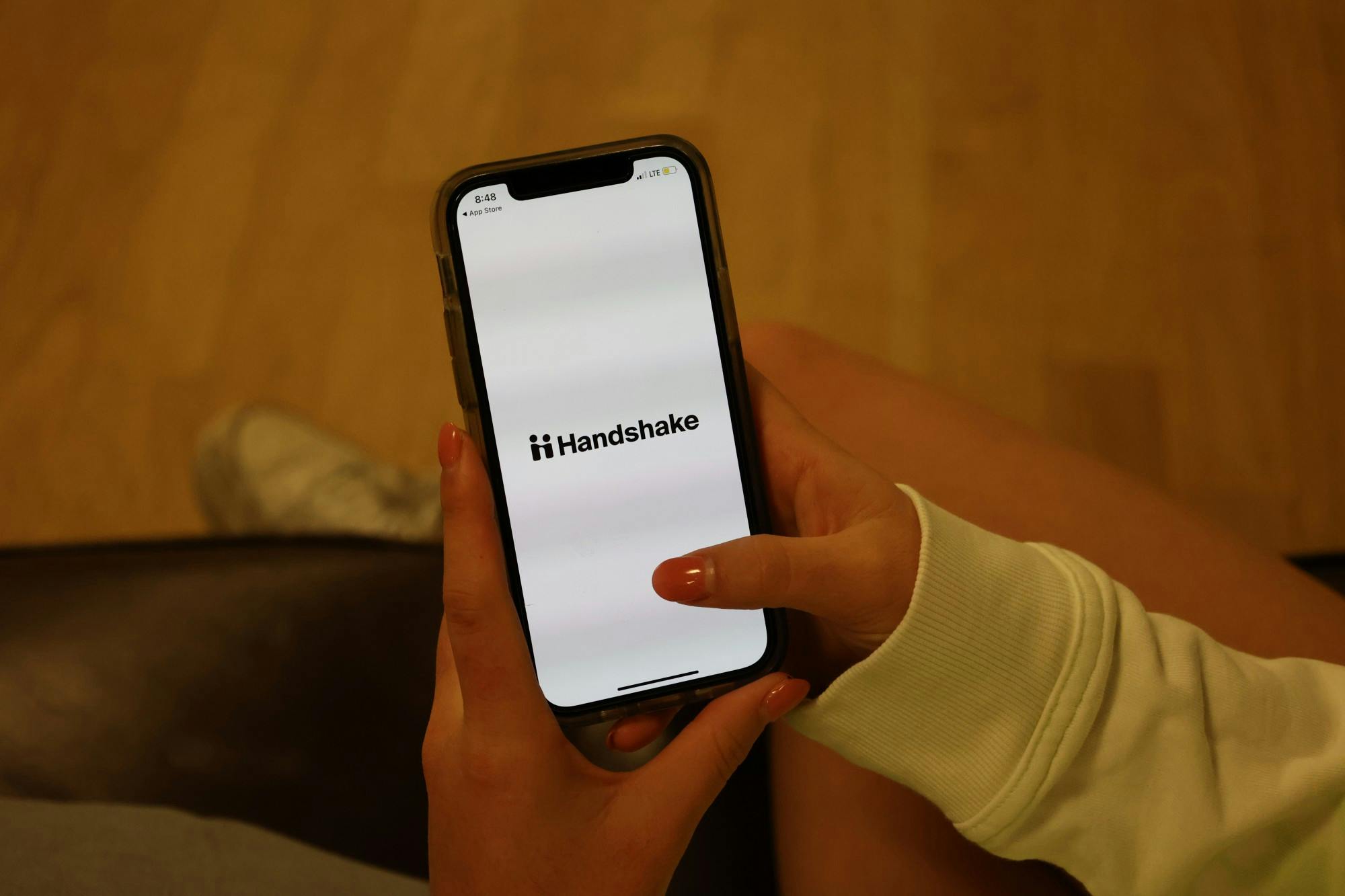As fall recruiting comes into full swing, members of the Class of 2022 are navigating both virtual and in-person recruitment. One new addition to the process is Handshake — a job-searching platform and mobile app that compiles career openings for college students — which the Center for Professional Development rolled out in May.
CPD director Monica Wilson noted that the job market for post-college hiring has “exploded” during this recruiting season and that employers are “anxious” to have more applicants. According to the New York Times, university career center directors and corporate human resources executives report that hiring is running well above last year’s levels, and in some cases is even surpassing pre-pandemic activity in 2019.
“I think job prospects for the Class of [2022] are excellent,” Wilson said “They’re in a much more improved place than last year.”
According to Wilson, the visit of Radian Capital — a venture capital company based in New York City — last week marked the first in-person recruitment events since the beginning of the COVID-19 pandemic. Wilson said that the CPD is planning more in-person events for the upcoming winter and spring terms, adding that, each year, the CPD usually communicates with “a few hundred” employers who want to hire at Dartmouth.
For some seniors who received return offers from previous internships, the job search for full-time positions post-graduation is over. Others have found internships by “resume-dropping” — submitting a resume directly on a company’s website — or through LinkedIn.
However, in every graduating class, there are always students who are unsure of what they want to do, according to Wilson. With the pandemic affecting internships and in some cases causing them to be fully canceled, Wilson said some seniors “haven’t had the experiences that would help them narrow down what they want to pursue.”
“I would say there are no clear trends [for the job-hunting process],” she said. “There are many ’22s who are at different stages.”
Handshake, which according to its website has become the number one source for U.S. college students to find jobs, currently has over 10,000 postings of full-time opportunities and internships by employers, Wilson said. She noted that one reason that the CPD decided to transition from Dartboard to Handshake is that Handshake’s interface is better suited for high volumes of job postings, adding that students looking to apply to graduate schools can find relevant information on Handshake as well.
“There is no shortage of opportunities,” Wilson said.
Wilson estimates that 70% of seniors have created Handshake profiles so far.
Computer science major Devanshi Udeshi ’22 received a return offer after interning at a tech company this past summer. Udeshi, who had initially gone through CPD’s sophomore summer recruiting program, said she found the CPD “helpful” for applying for positions in the consulting and finance industry, but added that recruiting in the technology industry is “a bit outside of the CPD.”
Udeshi said that in her experience, jobs in the tech industry rely “heavily” on referrals and resume-dropping during recruiting, which led her to find her internship and full-time job.
Economics major Jenique Richards ’22, who also went through CPD’s recruiting programs but ultimately found her internship and full-time job through LinkedIn, said she had often turned to the CPD website to find answers to her questions early in her internship search process. Additionally, Richards said she went to CPD workshops related to resume building and LinkedIn.
Wilson noted that in response to the pandemic, many employers have cut their traveling and recruiting budgets; many will come to campus via virtual job fairs. Acknowledging the limitations of virtual events, Wilson said she defines a successful virtual job fair by its level of “engagement between the students and representatives of employers.”
Udeshi said she recognized that there are both advantages and disadvantages to the transition to primarily virtual recruiting. While interviewing virtually is more convenient because it eliminates the need to travel for final-round interviews, Udeshi said those who make a better impression in person are put at a disadvantage.
Udeshi also pointed out that the pandemic has created more opportunities for people to apply to during the job-search process.
“Now that more remote positions have opened up, people have the freedom to live wherever they want and work at a company across the country,” she said “So that’s good, [since] you have a greater pool of jobs to interview for.”
Udeshi is a former member of The Dartmouth Staff.

Arizbeth Rojas ’25 is a managing editor of the 181st directorate from Dallas, TX. When she’s not listening to DJ Sabrina the Teenage DJ or planning her next half marathon, you can find her munching on a lox bagel.




